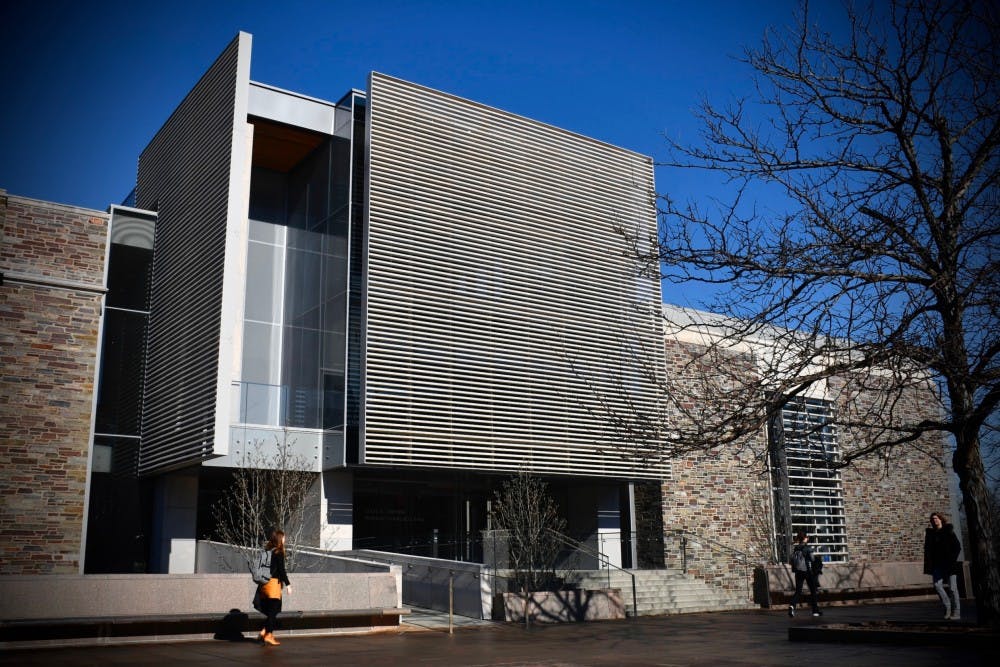Citing legal and tax risks, the University has terminated the employment of 10 students residing abroad seeking to work remotely for the Spring 2021 semester, according to Deputy University Spokesperson Michael Hotchkiss in an email to The Daily Princetonian.
Until this January, the University prohibited any new employment of students living abroad, but allowed for renewed employment for students returning to positions they had started last spring. Now, international students residing abroad generally cannot be employed by the University.
According to Hotchkiss, “The University conducted a detailed review of this issue from June to December 2020 that included participation from 13 campus departments and drew on outside legal and tax expertise. Based on that review and the related risk exposure to the University and student employees, the University developed policies that include restrictions on student employment abroad.”
“We regret having to impose restrictions on employment for students living outside the U.S., but must recognize the tax and legal risks such employment can create for students and the University,” he continued. “Each country has its own tax and employment laws, and Princeton is required to set up student employment abroad according to the laws of each country.”
Hotchkiss also noted that the University has waived the standard $3,500 student contribution for all students on financial aid for the academic year, meaning that these students are no longer expected to pursue employment as part of their aid package.
“We understand this decision is disappointing to students and their campus supervisors,” wrote Hotchkiss. “We are hopeful these students will be able to resume employment in the U.S. during the fall.”
One of the students affected by this policy is Ilia Curto Pelle ’22, a junior in the Classics department currently residing in Bulgaria for the spring semester. Since his first year, he had been working with the Princeton Numismatic Collection, a special collection of over 100,000 coins and other historic forms of currency, under Firestone Library’s Curator of Numismatics Alan Stahl.
In March 2020, Curto Pelle, along with the majority of the student body, left campus as per University policy. He was able to continue in his position with Stahl remotely throughout the rest of the semester and into the summer, when he then added on a new position as student assistant to Professor of Art and Archaeology Carolyn Yerkes.

Curto Pelle said he wants to earn more money to help his parents pay tuition, even with the student contribution waived this year.
“I obviously have a pretty sizable amount of financial aid for which I’m very grateful to the University,” Curto Pelle said. “But nonetheless, [the tuition] is a big sum for the income that my parents have and so I help them out with working.”
As the Fall 2020 semester approached, the University began confirming availability and eligibility of employers and employees. Their policy at the time prohibited any new employment of students living abroad, but allowed for renewed employment for students returning to positions they had started last spring. Curto Pelle and his supervisors were therefore able to continue their work.
This changed in January, when the Office of Student Employment (OSE) contacted Curto Pelle regarding his assistant position with Yerkes and his work with the Numismatic Collection.

The email read, “Unfortunately, we are unable to approve spring term employment for XXXX. Our records indicate they are residing outside the US and are therefore ineligible for remote work.”
The email included a link to the University’s Spring 2021 policy page for remote student employment.
“Students who worked after Aug. 31, 2020 and wish to continue in the same job will be reviewed on a case-by-case basis,” the page states, instructing supervisors to contact the OSE to request permission for rehiring student employees residing abroad.
Curto Pelle explained that Stahl then sent a letter of recommendation for Curto Pelle’s continued employment to the OSE in the hopes that they would re-evaluate his case.
However, the OSE wrote back explaining that the “case by case” guidance referred specifically to a small group of international students who have already signed full-year work contracts with the University and are therefore allowed to continue their employment.
Editor’s Note: A previous version of this article incorrectly referred to the Office of Student Employment as the “Center for Student Employment,“ and one line of quoted material has been updated to more clearly reflect the original statement. The ‘Prince’ regrets these errors.








